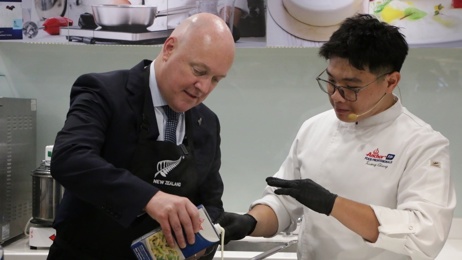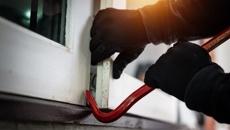
Yesterday, the Prime Minister finally dropped the C-bomb.
The word she and her Ministers have worked so hard not to say for a week, despite that word dominating the news agenda during that time.
Jacinda Ardern finally conceded there was a cost of living “crisis” in New Zealand.
Or rather, she said there was a “crisis” for some and she would also describe it as “an emergency” or “a shock”.
For the entire week prior, she – and her Ministers – repeatedly refused to make that admission despite soaring petrol prices and spiking levels of inflation.
Not only would she not admit there was a cost of living crisis last week – she basically wouldn’t even utter the word.
Ardern “absolutely acknowledged” that some families were doing it tough.
And her Deputy Grant Robertson similarly acknowledged some families were facing “significant financial pressure”.
Eventually, on Thursday night in an interview with RNZ, Social Development Minister Carmel Sepuloni finally conceded: “I think for many families it is a crisis”.
Meanwhile, the Opposition was taking every opportunity they could to hammer Ardern and her Ministers on this issue.
National, Act and the Māori Party collectively asked 23 questions referencing the “cost of living crisis” in the House last week.
And on Thursday night, it was clear why the Opposition had put so much effort into this line of attack.
The 1News/ Kantar poll revealed National was ahead of Labour for the first time in close to two years.
National had jumped 7 percentage points, while Labour had dropped three.
Labour’s internal polling will be similar.
There is no doubt the cost of living debate factored into these numbers – anyone who follows politics closely knows that issues which directly impact voters’ back pockets tend to move the dial the most.
Kantar’s pollsters were in the field from Saturday March 5 until Tuesday March 8, meaning Ardern refusing to “characterise” the cost of living crisis as a cost of living crisis would be fresh in voters’ minds.
Fast-forward to Monday and Ardern had not only finally somewhat admitted there was a crisis, but had convinced Cabinet to slash fuel excise taxes and road user charges slashed by 25c and half public the costs of public transport.
Quite a dramatic turnaround in just a week.
What made Ardern’s unwillingness to make the admission so much harder to watch was if the shoe was on the other foot – and Ardern was the leader of the Opposition – she would have been the loudest critic of a Prime Minister refusing to call a spade a spade and admit there is a cost of living crisis at the moment.
In February 2019 speech in the House, Ardern took a swipe at National’s housing record: “I am proud of the leadership this Government is showing on housing, when that last Government wouldn't even call it what it was, and it was a crisis.”
That sounds awfully familiar.
By refusing to make the admission earlier, Ardern gave the Opposition a week of free hits and made her Government look out of touch.
She got there in the end – but the jury’s out as to whether it will be enough to stem the bleeding in the polls.
But it’s a shame it took a bad poll to convince Ardern to make the concession.
Take your Radio, Podcasts and Music with you








